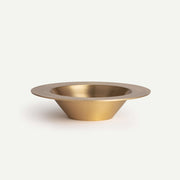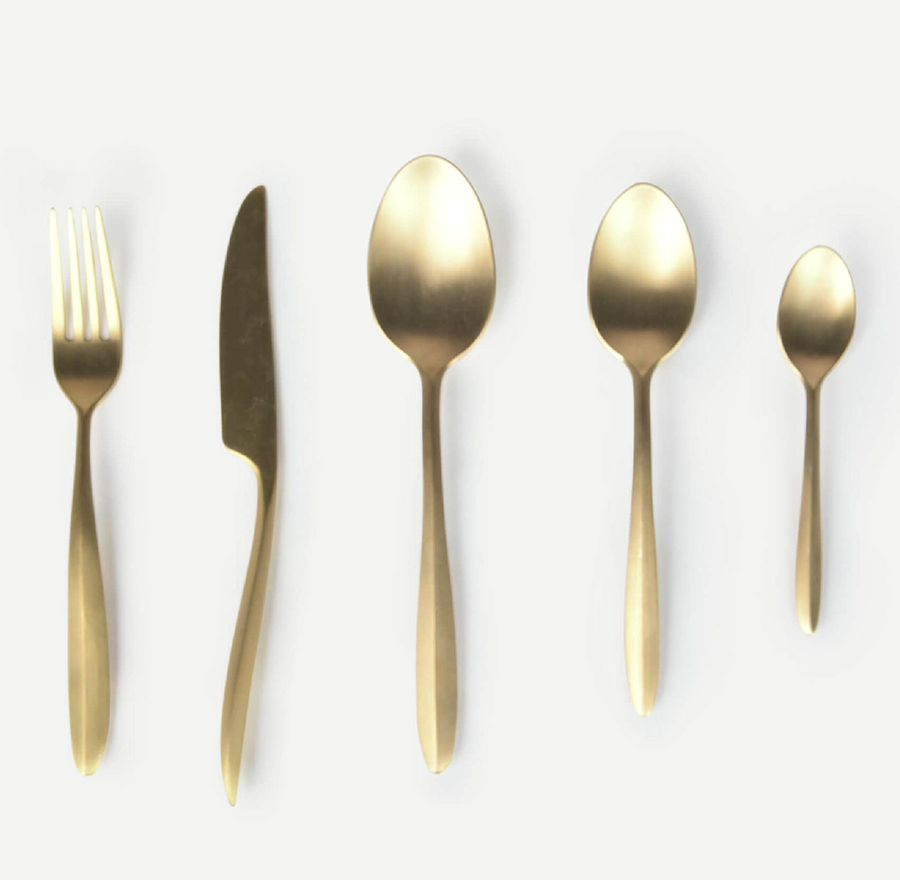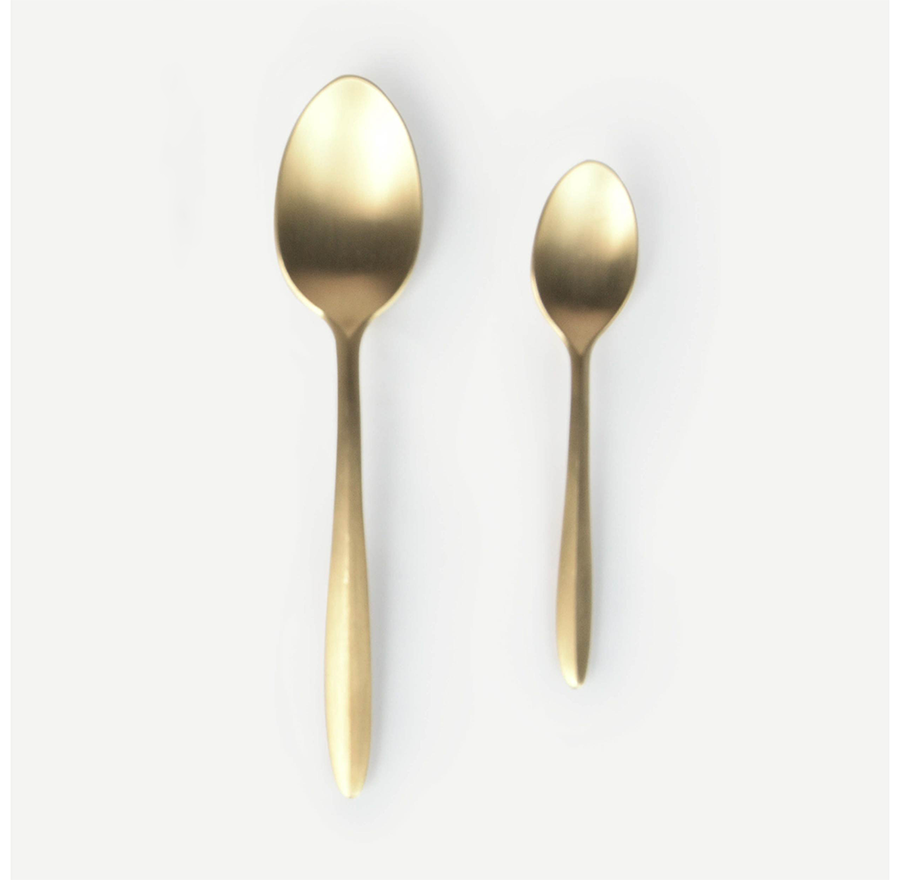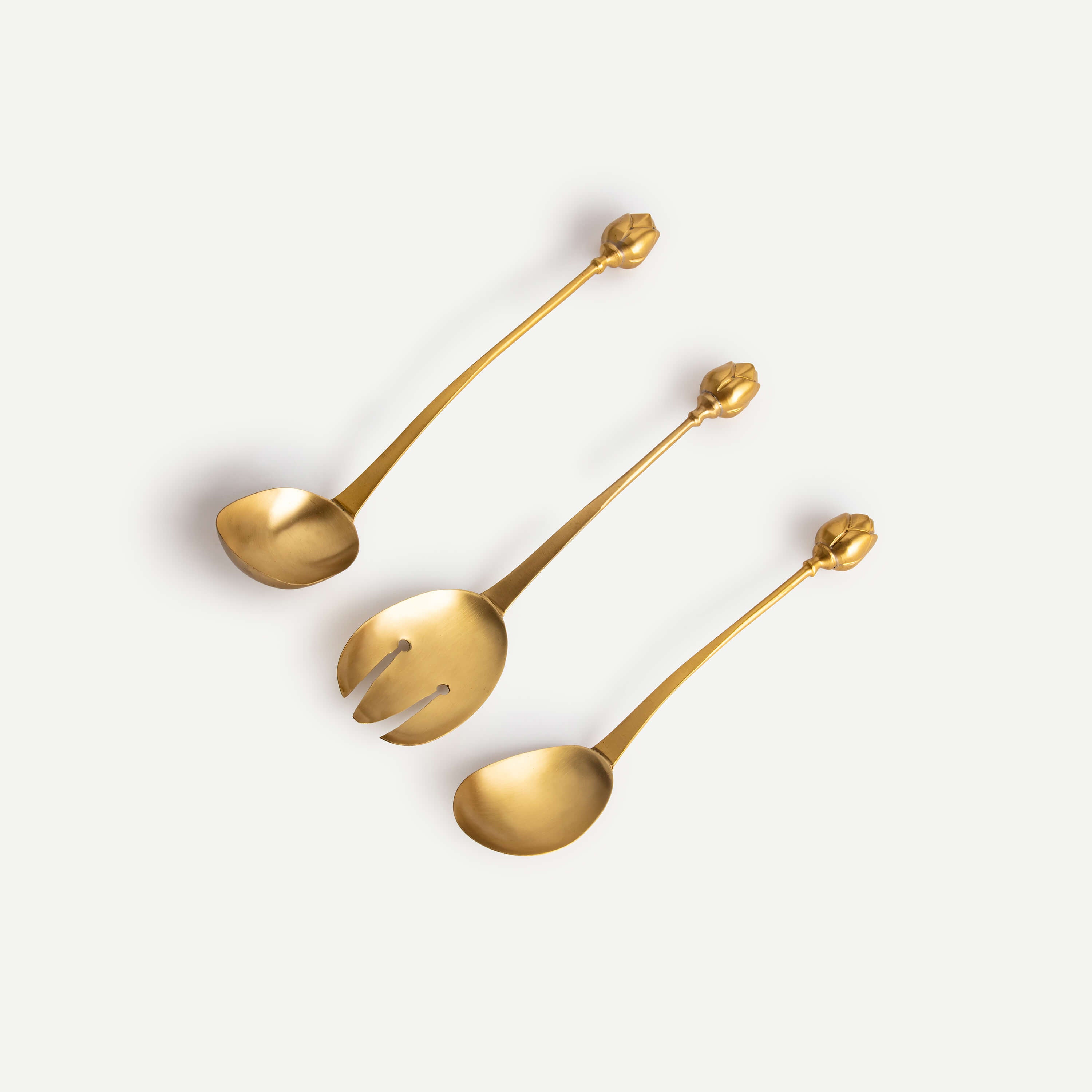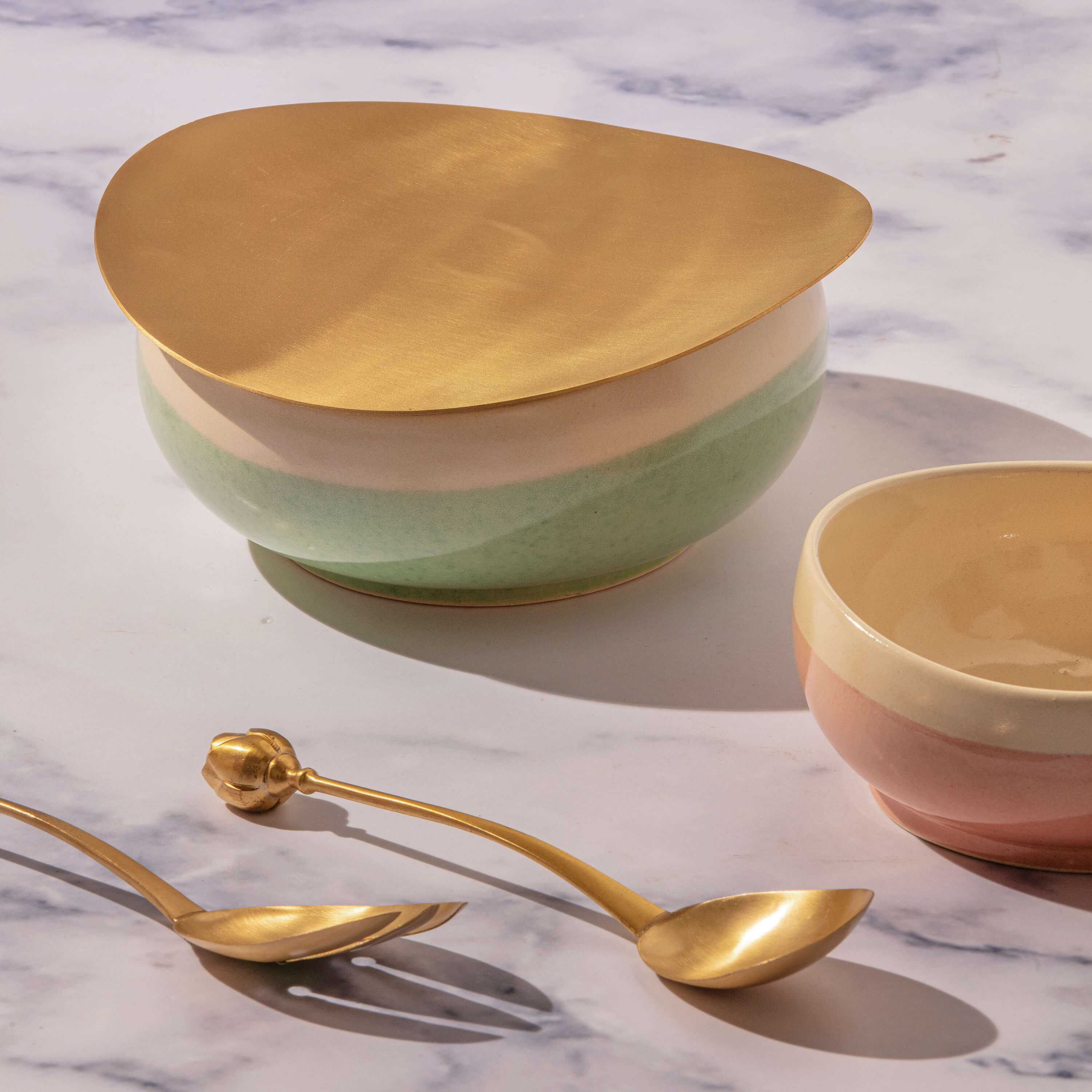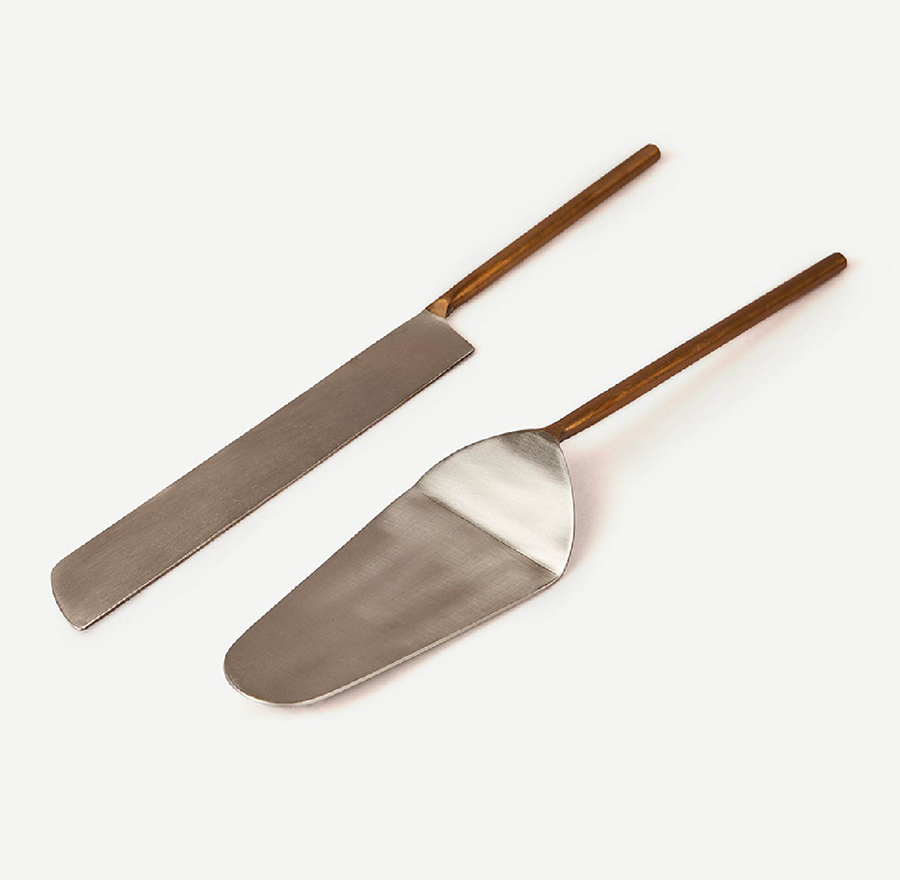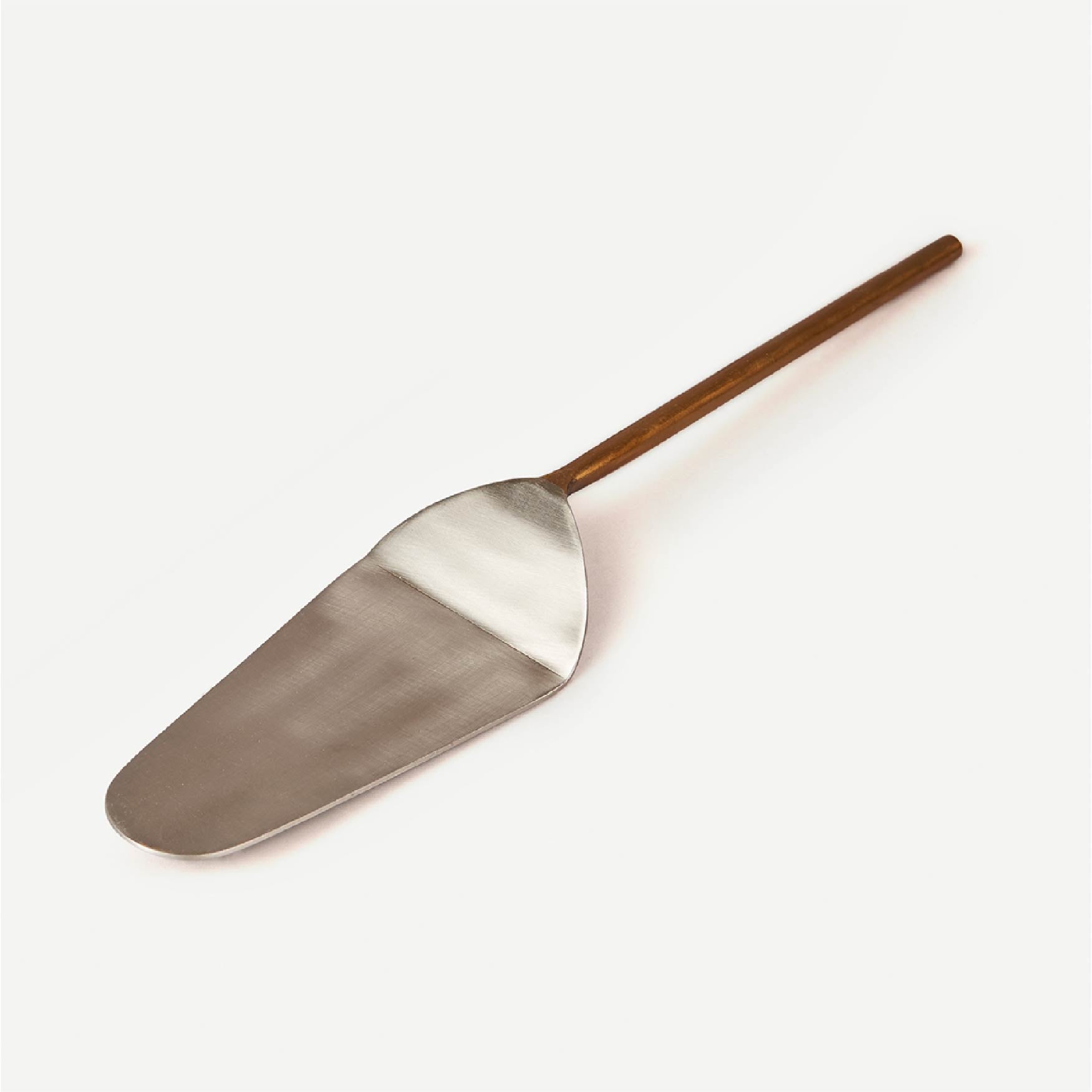SUNEHRA SERVING DISH
This bronze metal dish can be used in several ways — including serving main course or even dessert — to add a bit of understated style when entertaining
This bronze metal dish can be used in several ways — including serving main course or even dessert — to add a bit of understated style when entertaining
Craft Type: Kansa Kaam
Crafted in bronze metal, this dish has a shallow bowl which makes room for anything you wish to serve — be it curry or dessert. Aside from the health benefits of the metal as enshrined by Ayurveda, a natural system of medicine that dates back several millennia and originated in the Indian subcontinent, kansa (bronze) makes for gorgeous and impressive serveware. As it ages, the metal will oxidise, change colour and become darker but it will still be as functional and impressive as on day one.
Craftspeople skilled in the traditional and ancient craft of making kansa ware are often referred to as kansari karigars. This product is handmade by kansari karigars from Orissa. These craft clusters are spread across Puri, Ganjam, Gajapati, Gunpur, Balasore, Balangir and Dhenkanal.
This product is handcrafted and therefore slight variations in colours, textures and forms are inevitable and aren’t flaws.
Made in: Uttar Pradesh
Material: Kansa
Dimensions (cm): 23.3(L) x 23.3(B) x 5.2(H); Dia: 23.3
Dimensions (inches): 9.1(L) x 9.1(B) x 2(H); Dia: 9.1
Capacity: 365 ml
Weight: 880 grams
No. of pieces in a set: 1, One Kansa Dish
Kansa is a metal alloy of copper and tin, and the process of making kansa ware begins with melting these metals to make the alloy, followed by repeated hammering and beating of the metal alloy to give it form and shape. Ikai Asai’s kansa ware is handmade by craftspeople in Uttar Pradesh using tools such as hammers, pincers, tongs and scrapers. It is a highly skilled craft requiring years of practice. It is also a collaborative process and each piece requires multiple craftspeople to work together simultaneously.
- Wash by hand only, using a mild dishwashing soap, or with lemon and baking soda, or with imli (tamarind) as done traditionally. Use a soft sponge to avoid abrasions. Clean immediately after use, and wipe it dry using a clean, dry cloth.
- Kansa wares are safe to serve from and eat out of. However, it is not advisable for storing food.
- Avoid using kansa ware for serving or eating extremely sour or citric foods.
- This product is not microwave-safe.
- Kansa naturally darkens with use, and there is little you can do to prevent its natural ageing. If left untreated bronze will eventually turn entirely, but unevenly, dark. This dark oxidized state is the natural colour of all copper alloys and is safe to use.
- Description
- Process & Craft
- Care
Craft Type: Kansa Kaam
Crafted in bronze metal, this dish has a shallow bowl which makes room for anything you wish to serve — be it curry or dessert. Aside from the health benefits of the metal as enshrined by Ayurveda, a natural system of medicine that dates back several millennia and originated in the Indian subcontinent, kansa (bronze) makes for gorgeous and impressive serveware. As it ages, the metal will oxidise, change colour and become darker but it will still be as functional and impressive as on day one.
Craftspeople skilled in the traditional and ancient craft of making kansa ware are often referred to as kansari karigars. This product is handmade by kansari karigars from Orissa. These craft clusters are spread across Puri, Ganjam, Gajapati, Gunpur, Balasore, Balangir and Dhenkanal.
This product is handcrafted and therefore slight variations in colours, textures and forms are inevitable and aren’t flaws.
Made in: Uttar Pradesh
Material: Kansa
Dimensions (cm): 23.3(L) x 23.3(B) x 5.2(H); Dia: 23.3
Dimensions (inches): 9.1(L) x 9.1(B) x 2(H); Dia: 9.1
Capacity: 365 ml
Weight: 880 grams
No. of pieces in a set: 1, One Kansa Dish
Kansa is a metal alloy of copper and tin, and the process of making kansa ware begins with melting these metals to make the alloy, followed by repeated hammering and beating of the metal alloy to give it form and shape. Ikai Asai’s kansa ware is handmade by craftspeople in Uttar Pradesh using tools such as hammers, pincers, tongs and scrapers. It is a highly skilled craft requiring years of practice. It is also a collaborative process and each piece requires multiple craftspeople to work together simultaneously.
- Wash by hand only, using a mild dishwashing soap, or with lemon and baking soda, or with imli (tamarind) as done traditionally. Use a soft sponge to avoid abrasions. Clean immediately after use, and wipe it dry using a clean, dry cloth.
- Kansa wares are safe to serve from and eat out of. However, it is not advisable for storing food.
- Avoid using kansa ware for serving or eating extremely sour or citric foods.
- This product is not microwave-safe.
- Kansa naturally darkens with use, and there is little you can do to prevent its natural ageing. If left untreated bronze will eventually turn entirely, but unevenly, dark. This dark oxidized state is the natural colour of all copper alloys and is safe to use.
Country of Origin: India
Manufacturer Details: Zameer Handicrafts: Kisrol Kanth Ka Pull, Mohd Ali Road, Near Budiya Wali Masjid, Moradabad, Uttar Pradesh - 244001











